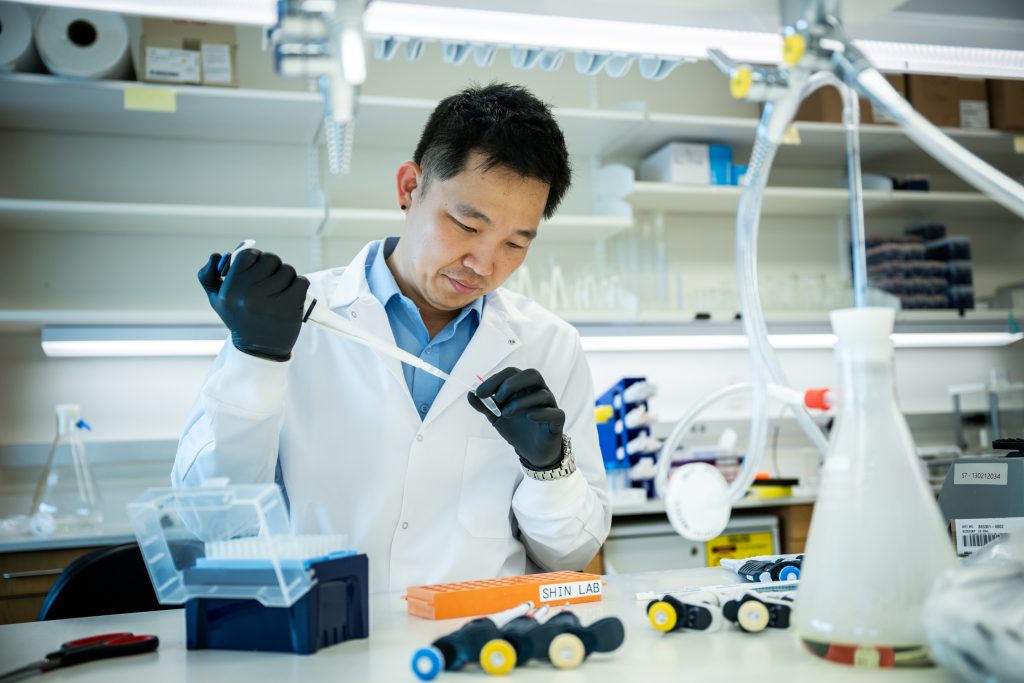

Mangyu Choe, Ph.D.
Mangyu Choe, Ph.D., earned his bachelor’s in biology from Seoul National University in South Korea. He stayed to complete his master’s and Ph.D. in microbial physiology. During his training, he worked on unveiling the underlying molecular mechanism of glucose preference over other carbon sources in Escherichia coli, simply known as Carbon Catabolite Repression (CCR). He then joined Denis Titov’s lab at UC Berkeley as a postdoctoral fellow, where he developed a data-driven mathematical model and a genetic tool to study metabolism.
Dr. Choe joined the Children’s Medical Center Research Institute at UT Southwestern (CRI) in 2024 as a research assistant professor. He is now focusing on developing and applying genetic tools to study inter-organelle communications.

